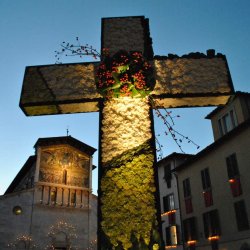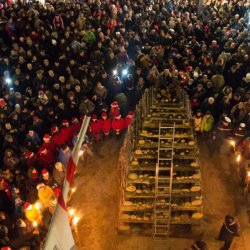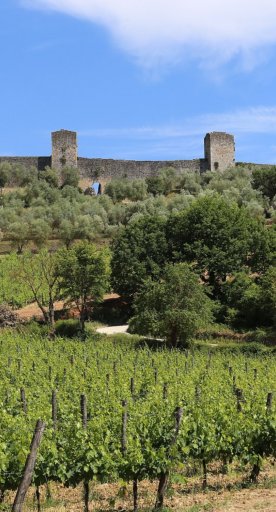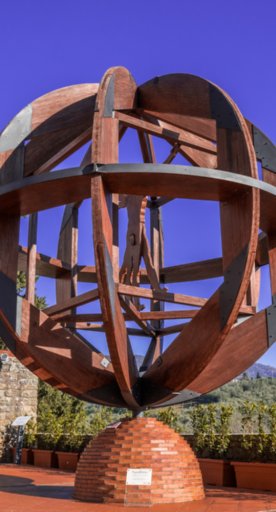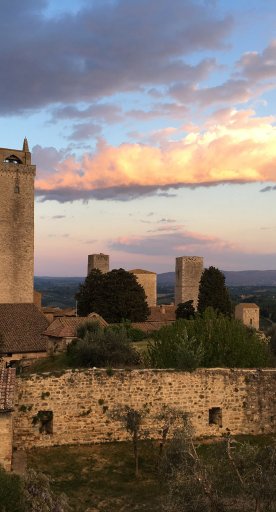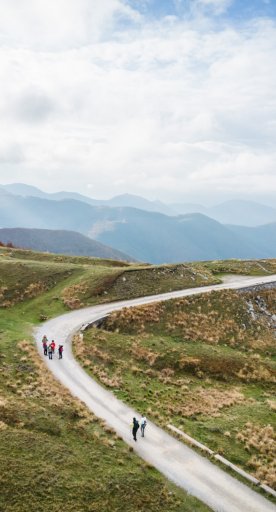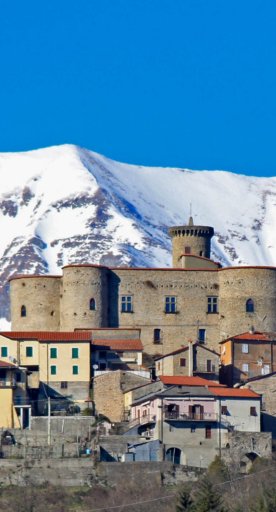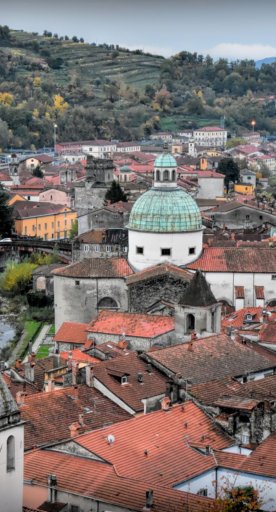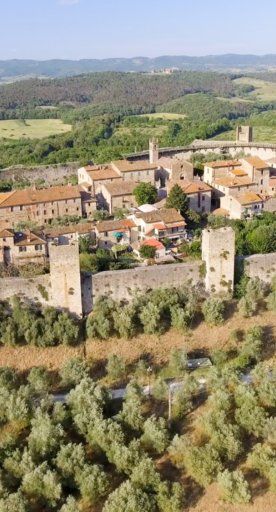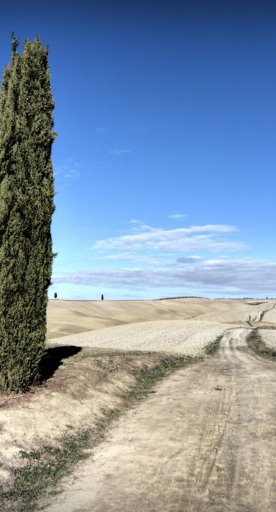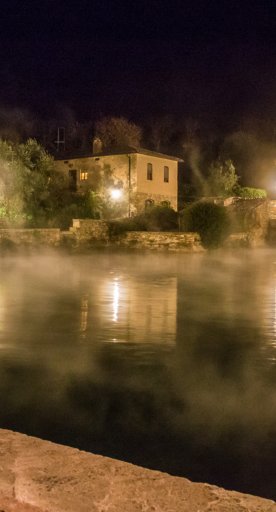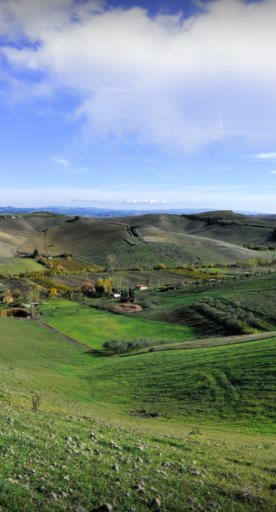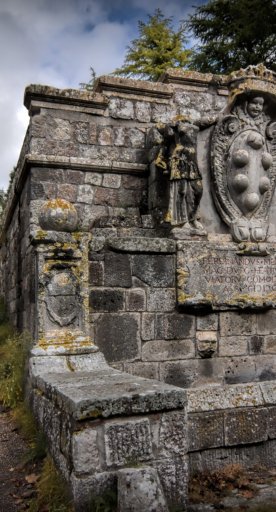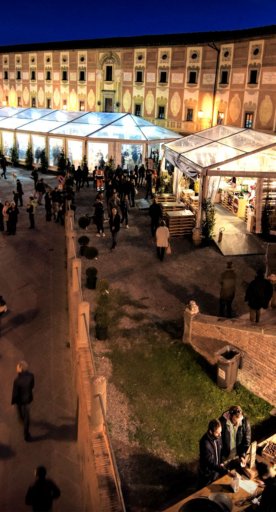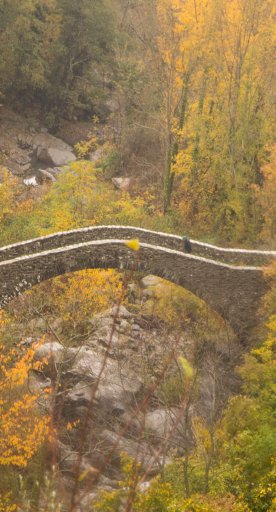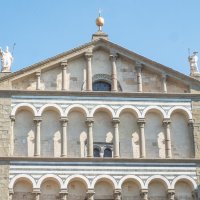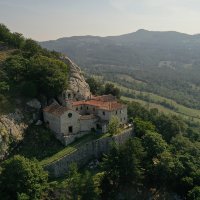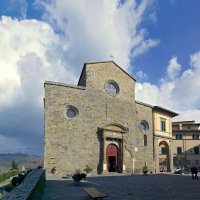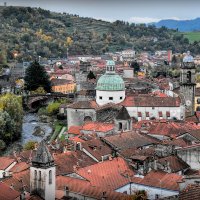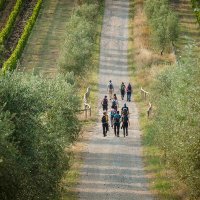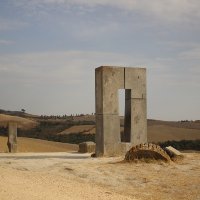10 churches along the Via Francigena
Here are some of the churches that you can visit while traveling along the Via Francigena
The Via Francigena is the general name of an ancient road and pilgrim route running from France to Rome. The route was known in Italy as the Via Francigena (“the road that comes from France”) or the Via Romea Francigena (“the road to Rome that comes from France”). In medieval times it was an important road and pilgrimage route for those wishing to visit the Holy See and the tombs of the apostles Peter and Paul.
The entire Tuscan section of the Via Francigena - 380 km of history, culture, traditions and stunning landscapes - has recently been made safer and the infrastructure has been fully restored.
Here you can read “all the things you need to know” about the Via Francigena in Tuscany. Meanwhile, below, we focus our attention on some of the churches that you can visit while traveling along it, from North to South.
-
1.Pieve di Santo Stefano a Sorano - Filattiera
-
2.San Caprasio Abbey - Aulla
-
3.Cathedral of Saints Peter and Francis - Massa
-
4.Badia of San Pietro – Camaiore
-
5.San Martino Cathedral - Lucca
-
6.Church of San Jacopo - Altopascio
-
7.Oratorio Del Loretino - San Miniato
-
8.Baptistery of San Giovanni – Siena
-
9.The Crypt – Siena
-
10.Collegiata dei Santi Quirico e Giulitta - San Quirico d’Orcia
Pieve di Santo Stefano a Sorano - Filattiera
The Pieve di Sorano was mentioned in the 10th century by Sigeric, the Archibishop of Canterbury, who spent some time in the area on his way back from Rome.
The whole building is made with impoverished, local materials (river rocks) and was completely restored in 2000.

San Caprasio Abbey - Aulla
The Abbey was founded in 884 AD, inside a castle, and is the oldest monument in Aulla. The building assumed its current appearance with three naves around 1070 and it was refurbished in the 14th century and during the baroque period.
When in the area, you should pay a visit to the San Caprasio museum as well.
Cathedral of Saints Peter and Francis - Massa
The church was built on the remains of a monastery and was consecrated in 1389, as noted on the stone in the Chapel of the Stigmata.
The façade was reconstructed in 1936, based on designs by Cesario Fellini, and the basement cherishes the Cybo-Malaspina tomb, the final resting place of the town’s princes. Inside the Cathedral, you will find many noteworhty works of art, such as Pinturicchio’s Madonna with Child.

Badia of San Pietro – Camaiore
Founded in the seventh century by Benedictine monks, along with a monastic complex surrounded by walls. It has long been a reference point along the Via Francigena route.
Make sure you see the 17th century organ that every summer takes centre stage in an International Organ Festival.

San Martino Cathedral - Lucca
Construction on this Catholic cathedral began in 1063. Of the original structure, we can still admire the great apse and the bell tower. Inside, there’s the most precious relic in Lucca - the Holy Face of Lucca – and the funeral monument of Ilaria del Carretto, sculpted in 1408 by Jacopo della Quercia.
There’s a legend to explain why all the columns of the façade are different: a contest for the best column was announced and every artist made one, then the inhabitants of Lucca decided to keep all the columns without paying the artists!
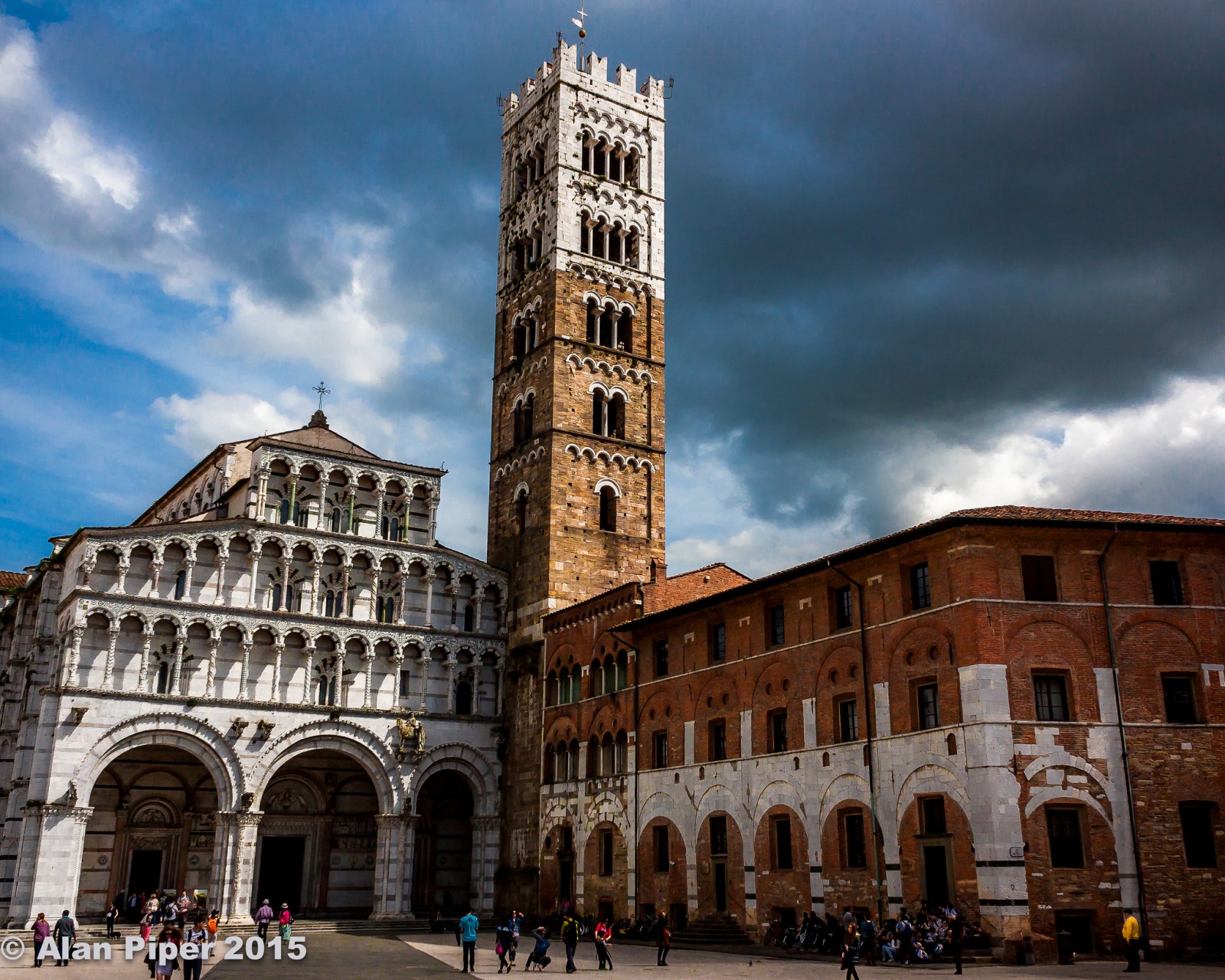
Church of San Jacopo - Altopascio
The town of Altopascio and its "Spedale" (or hospital) have welcomed crowds of pilgrims since the Middle Ages. The complex dates back to the 11th century and also includes the Church of San Jacopo, which was build in the following century. Both the church and the complex underwent many renovations and expansions across the years.
Fun fact, the order of friars that oversaw the Spedale adopted the Tau as their symbol and in 1239 Pope Gregory IX bestowed the Rule upon the Tau friars, officially making them a relogious order.
Oratorio Del Loretino - San Miniato
The Oratory dedicated to the Madonna del Loreto is a small space set within the premises of San Miniato Town hall.
Built in the late 13th century, it boasts walls and vaultscompletely frescoed with scenes from the life of Christ.
Baptistery of San Giovanni – Siena
To the rear of the cathedral, an impressive staircase leads to this gem.
Admire the frescoes that completely decorate the magnificent vaults, the most extensive and articulated religious cycle of the Sienese Renaissance, and the splendid baptismal font by Jacopo della Quercia, Donatello and Lorenzo Ghiberti.

The Crypt – Siena
Under the Baptistery, a room with 180 square meters of fully painted walls. Buffered and filled with debris, it remained buried and hidden for about seven centuries and unexpectedly rediscovered during excavation work in 1999.
The paintings, original colors, subjects and architectures give us important insight into the Sienese painting school of the thirteenth century.

Collegiata dei Santi Quirico e Giulitta - San Quirico d’Orcia
The first known document about San Quirico d’Orcia dates to 712 AD and it’s an act relating to a dispute between the diocese of Siena and Arezzo for the possession of some churches, among which figure the beautiful church of San Quirico in Osenna.
The Collegiata we admire today was built right above the oldest Osenna church between the 12th and 13th centuries. Among the other things, the interior boasts beautiful inlaid panels by the sienese Antorio Barilli.



